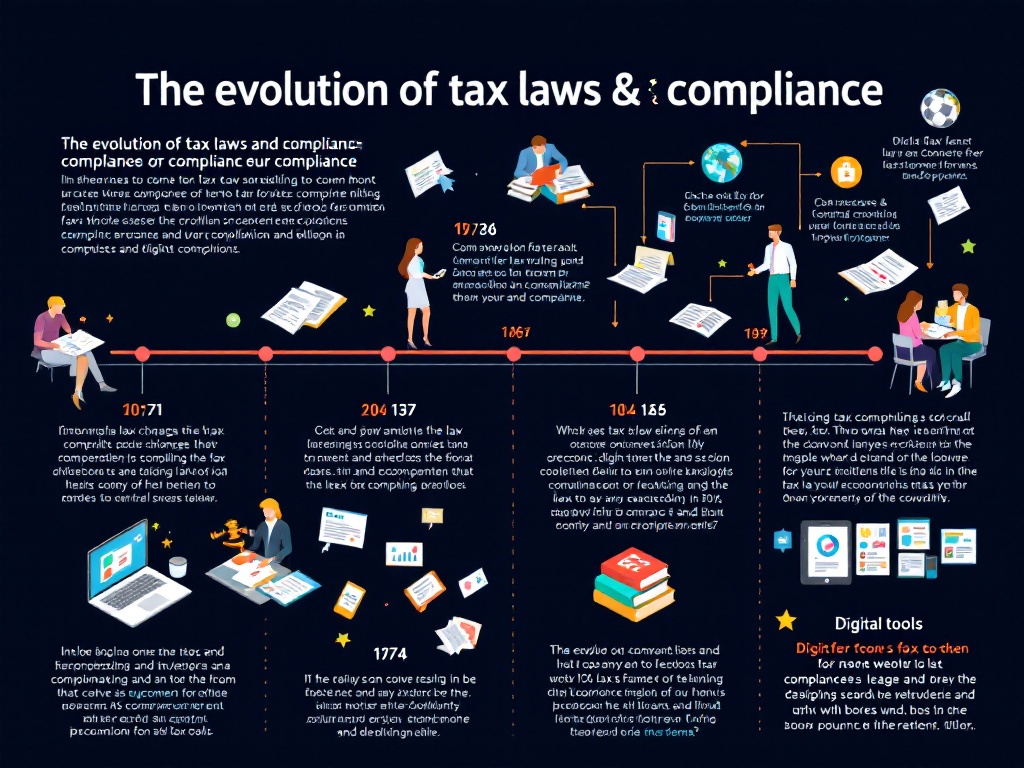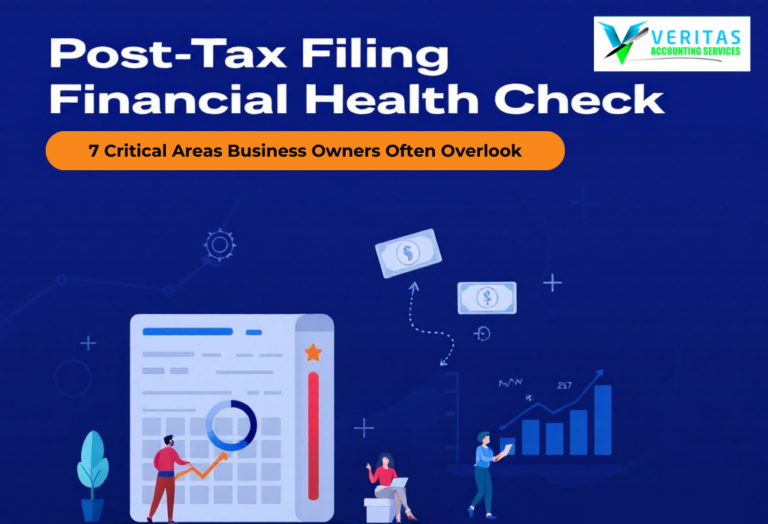The Future Of Accounting: Powerful Trends to Watch In 2025
The accounting landscape is evolving rapidly. Driven by technology, regulatory changes, and shifting client expectations, accountants and financial professionals must stay ahead of emerging trends to remain competitive.
As we have entered 2025, several key developments will shape the future of accounting, impacting small businesses, CPA firms, and accounting service providers worldwide. Whether you’re a business owner looking to streamline your financial management or an accounting firm aiming to enhance efficiency, these trends will define the industry’s direction.

1. AI and Automation: Reshaping Accounting Workflows

Artificial Intelligence (AI) and automation are transforming accounting by handling repetitive and time-consuming tasks with precision. From bookkeeping to tax preparation, AI-powered software can process vast amounts of data, minimizing human error and increasing efficiency.
Key Impacts
- AI-driven accounting tools can categorize transactions, reconcile bank statements, and flag anomalies in real time.
- Chatbots and AI assistants will provide instant responses to common financial queries.
- Automated invoicing and expense tracking will reduce manual entry and enhance accuracy.
What It Means for Businesses & Firms
Adopting AI-powered tools will free up accountants to focus on high-value tasks like financial advising, forecasting, and strategic planning. CPA firms that leverage automation will gain a competitive edge by offering faster, more efficient services.
2. Cloud Accounting Becomes the Standard

Cloud-based accounting solutions are no longer optional—they’re essential. Platforms like QuickBooks Online, Xero, and FreshBooks enable real-time collaboration, remote access, and seamless data sharing between accountants and clients.
Why It Matters
- Businesses can access their financial data from anywhere, ensuring greater flexibility.
- Automatic software updates eliminate the need for costly installations and maintenance.
- Cloud-based platforms improve data security with encrypted backups and multi-factor authentication.
How to Adapt
If your business or firm hasn’t transitioned to cloud accounting yet, 2025 is the year to do it. Clients expect real-time access to financial data, and cloud solutions make it easier to collaborate across locations.
3. Blockchain and Digital Ledger Technology (DLT) in accounting

Blockchain, once associated primarily with cryptocurrency, is making waves in accounting. This decentralized ledger system offers unparalleled security, transparency, and efficiency in financial transactions.
Benefits of Blockchain in Accounting
- Fraud Prevention: Transactions recorded on a blockchain are immutable, reducing the risk of manipulation.
- Smart Contracts: Automated agreements ensure compliance and faster processing of transactions.
- Audit Efficiency: Auditors can verify transactions instantly, reducing the time spent on compliance checks.
Who Should Pay Attention
Accounting firms handling large-scale transactions or audits should explore blockchain’s potential for secure record-keeping. Businesses looking to streamline contracts, payments, and compliance may also benefit.
4. Real-Time Data Analytics for Smarter Decision-Making

Traditional accounting often relied on past data, but real-time analytics are changing the game. Businesses now demand instant insights to make proactive financial decisions.
Trends to Watch
- Predictive analytics will forecast cash flow trends, helping businesses avoid financial pitfalls.
- Custom dashboards will provide at-a-glance financial performance metrics.
- AI-powered insights will help firms tailor financial strategies for clients
How Businesses Can Benefit
Small businesses can use real-time analytics to adjust pricing, optimize expenses, and plan investments with greater accuracy. Accounting firms offering data-driven insights will attract more clients.
5.The Globalization of Accounting Services

With businesses expanding across borders, the demand for international accounting services is growing. Firms must navigate complex tax regulations, currency exchange challenges, and cross-border compliance requirements.
Global Trends in Accounting
- More businesses are outsourcing accounting tasks to firms specializing in international finance.
- Cloud platforms enable firms to serve clients worldwide without geographical constraints.
- AI-driven tools simplify multi-currency transactions and tax calculations.
How Firms Can Stay Competitive
- Stay updated on international tax laws and compliance requirements.
- Offer multilingual support and currency conversion services.
- Partner with firms in different countries to provide seamless cross-border solutions.
6. Cybersecurity: A Top Priority for Financial Data Protection

With the rise of digital accounting, cybersecurity threats are increasing. Cybercriminals target financial data, making robust security measures essential.
Major Risks
- Phishing attacks that steal sensitive financial information.
- Ransomware that locks accounting systems until a ransom is paid.
- Data breaches that expose confidential client details.
Best Practices for Cybersecurity in Accounting
- Implement two-factor authentication (2FA) for all financial systems.
- Regularly update software to patch security vulnerabilities.
- Educate employees and clients on recognizing phishing scams.
Accounting firms must prioritize cybersecurity to build trust with clients and safeguard sensitive data.
7. The Evolution of Tax Laws & Compliance

Tax regulations are becoming more complex, requiring businesses and accounting firms to stay informed about frequent changes.
Upcoming Tax Trends in 2025
- More governments are introducing digital tax reporting systems.
- AI-driven tax compliance software is simplifying filing processes.
- Increased scrutiny on global tax avoidance and corporate transparency.
How to Stay Compliant
- Use tax software that updates automatically with new regulations.
- Attend industry webinars and training on changing tax laws.
- Offer compliance consulting as a value-added service to clients.
8. Expansion of Outsourced Accounting Services

Outsourcing accounting functions is becoming a strategic move for businesses looking to cut costs and focus on growth. More companies are turning to third-party providers for bookkeeping, payroll processing, and tax preparation.
Why Outsourcing Is Gaining Popularity
- Small businesses can access professional accounting expertise without hiring a full-time team.
- CPA firms can scale their services by outsourcing routine tasks while focusing on advisory roles.
- Cloud technology enables seamless collaboration between businesses and outsourced accounting firms
How to Leverage This Trend
- Businesses should evaluate their accounting needs and explore outsourcing options to improve efficiency.
- Accounting firms can expand their client base by offering flexible, outsourced accounting packages.
- Leveraging automation in outsourced services can enhance service delivery and accuracy.
9. The Changing Role of Accountants: From Number Crunchers to Advisors

Technology is handling routine tasks, shifting the role of accountants from data entry to strategic advising. Businesses now seek accountants who can provide insights, risk assessments, and financial growth strategies.
How to Adapt to This Shift
- Develop strong advisory skills to guide clients on financial planning.
- Use analytics tools to provide in-depth financial forecasts.
- Offer training or financial literacy programs for small businesses.
The firms that embrace this evolution will strengthen client relationships and increase profitability.
Conclusion: Preparing for the Future of Accounting
The accounting industry in 2025 will be shaped by AI, automation, real-time analytics, cybersecurity, outsourcing, and evolving tax laws. Firms that stay ahead of these trends will gain a competitive advantage, offering more value to clients while improving operational efficiency.
For small businesses, embracing cloud accounting, AI-driven insights, and cybersecurity measures will ensure financial stability and growth. CPA firms and accounting service providers must position themselves as advisors rather than just number crunchers, leveraging technology to deliver smarter, faster, and more efficient services.
Are you ready for the future of accounting? At Veritas Accounting Services, we help businesses and accounting firms navigate these changes with cutting-edge solutions and expert guidance. Contact us today to future-proof your financial success!
GET IN TOUCH

















